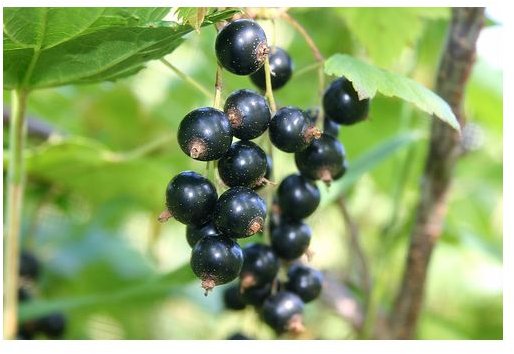Black Currant Seed Oil Benefits for Your Well-Being
What Is Black Currant Oil?
Black currant oil comes from the seeds of the hardy, deciduous shrub Ribes nigrum, which produces not only seeds packed with nutritional oil, but also tart, nutrient-dense berries. The oil is expressed from the seeds, packaged, and sold as nutritional supplements. This oil is valued for its health properties due to its high content of essential fatty acids, particularly gamma linolenic acid (an omega 6 fatty acid), but also alpha-linolenic acid (an omega 3 fatty acid). Having a balance of omega-6 and omega-3 oils, there are numerous benefits of black currant seed oil.
GLA and ALA
Gamma linolenic acid, or GLA, is an important omega-6 fatty acid. In a healthy body it can be produced from other omega-6 fatty acids, but factors such as a diet high in saturated fat and hydrogenated oils or nutritional deficiencies can inhibit this conversion. This is why supplementing with a source of GLA is a great way to ensure that the body has adequate levels of this essential fatty acid. Gamma linolenic acid helps the body burn fat, rather than storing it. It is also a precursor for prostaglandins, which act to regulate hormone and metabolic activity.
Black currant oil benefits are also due to the high content of alpha-linolenic acid, or ALA. These omega-3 fatty acids are important for overall well-being, perhaps most valuable for their ability to improve cardiovascular health and protect the body from heart disease. The typical western diet is high in omega-6 fatty acids, but low in omega-3 oils, which are found in fatty fish, walnuts, and some oils, including borage, flaxseed, and black currant seed.
Anti-Inflammatory
One of the most significant black currant oil benefits is the ability to reduce joint pain and stiffness. According to Arthritis Today, the GLA of supplements such as black currant seed does reduce the inflammation of rheumatoid arthritis. While some omega-6 fatty acids are known to increase inflammation, gamma linolenic acid is believed to reduce inflammation. This may be because GLA can be converted into DGLA in the body, which is a known anti-inflammatory substance. The omega-3 oils in black currant seed oil also act to reduce inflammation.
Cardiovascular Health
Adding black currant seed oil to your diet, or other nutritional oils that are rich in omega oils, is a great move for cardiovascular well-being. According to the American Heart Association omega-3 fatty acids decrease triglyceride levels, lower blood pressure, decrease the risk of arrhythmias, and slow the build-up of plaque along artery walls.
Weight Loss
Another benefit of this natural oil is increased energy and a more efficient use of fat. GLA increases fat burning and supplies the body with energy to use. While black currant seed oil is not a magic pill for weight loss, including it in the diet while also exercising and eating a well-balanced diet may certainly help promote the efficient metabolism of food.
Overall Well-Being
Aside from reducing inflammation, improving cardiovascular health, and increasing energy production there are other black currant seed oil benefits. Essential fatty acids are important for healthy skin, combating dryness and deterioration. Supplementing with a nutritional oil can help with common skin conditions including eczema, psoriasis, and even acne. They protect nerve cells and improve brain function, strengthen the immune system, and help to balance hormone production.
Supplementing Safely
While people with rheumatoid arthritis, those who are risk for heart disease, those who have skin conditions, or who are trying to lose weight may consider taking black currant seed oil to improve their well-being, anyone can benefit from the properties of this nutritional oil. There are no known side effects of taking supplements, although it is important to use a natural, trusted source and to follow the proper dosage listed on the package. Also, if pregnant or nursing make sure you talk to your doctor before taking black currant oil supplements.
References
University of Minnesota Extension https://www.extension.umn.edu/distribution/horticulture/DG1122.html
University of Maryland Medical Center https://www.umm.edu/altmed/articles/gamma-linolenic-000305.htm
Arthritis Today https://www.arthritistoday.org/treatments/supplement-guide/supplements/gla.php
American Heart Association https://www.heart.org/HEARTORG/GettingHealthy/NutritionCenter/HealthyDietGoals/Fish-and-Omega-3-Fatty-Acids\_UCM\_303248\_Article.jsp
Page, Linda. “Healthy Healing: A Guide to Self-Healing for Everyone, 11th Edition” (Traditional Wisdom, 2003).
photo by MWRI/flickr
Disclaimer
Please read this disclaimer regarding the information contained within this article.
